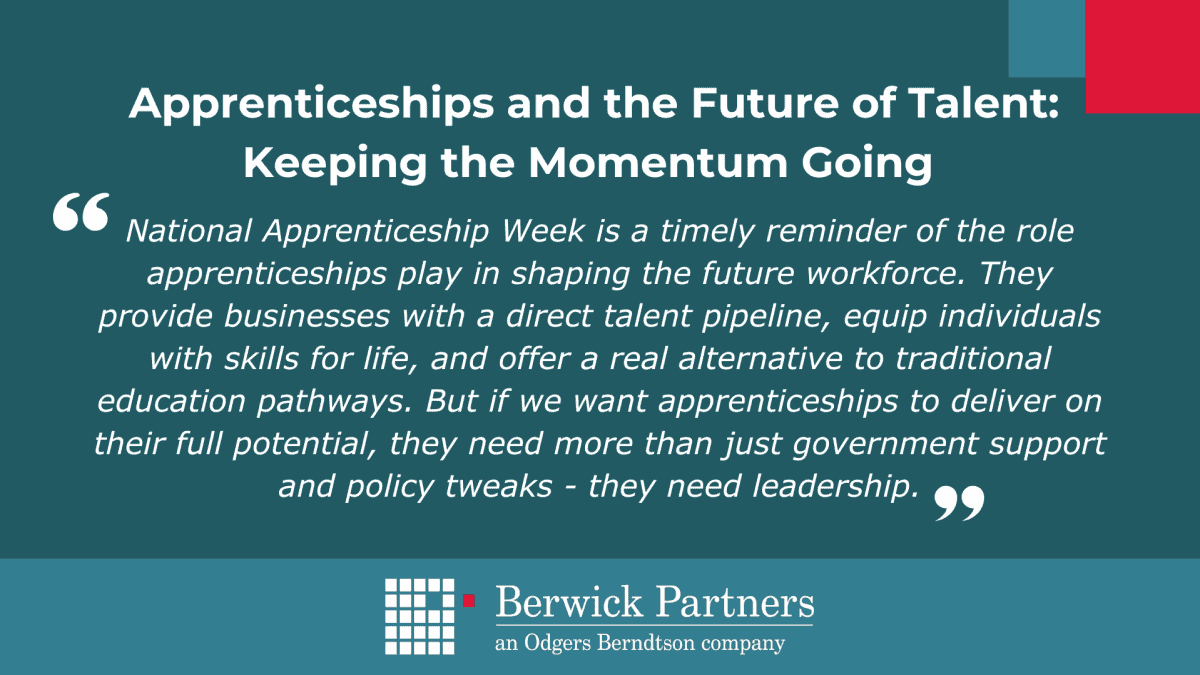6 Reflections on Hiring Heads of School in UK Higher Education
In 2011, I set up the education practice at Berwick Partners. A big part of our work is supporting Universities with the appointment of Heads of School. These disciplinary leads are the bridge between strategic vision and what actually happens on the ground. They are fundamental to the successful running of an Institution.
I’ve worked with a significant number of universities across the UK, on Heads of Schools projects and it’s a role I’ve come to understand deeply, not just in terms of what makes a good candidate, but also what makes the post itself so unique and challenging.
Here are 6 reflections from the past 15 years of working with these roles.
-
It’s a Marmite Role
The role of Head of School is a tough ask and some people absolutely thrive on its complexity. Successful candidates need to spin multiple plates, balance multiple priorities (TEF, REF, NSS anyone?) and manage an exceptionally skilled academic team who are all absolute subject matter experts.
Quite simply, this doesn’t appeal to everyone. Its time-consuming, intricate and often (small p) political work. It is not everyone’s cup of tea.
-
Desire Trumps Duty
One of the biggest takeaways for me is that candidates need to want to be a Head of School. Historically, individuals have stepped up because they felt they ought to, not because they were drawn to it and this doesn’t always lead to proactive, constructive leadership.
That said, I’ve seen people who were perhaps initially reluctant Heads of School absolutely thrive once they got into the role. It’s a gamble, but sometimes it pays off.
We often headhunt people who’ve previously been Heads of School, gone back to their research/ teaching and are now ready to do it again in a new setting. This is often about candidates bringing their experience and energy to a different environment.
-
Academic Career Paths Take A Different Trajectory
Unlike many sectors, academia doesn’t always aspire to upward mobility in the traditional sense. In most industries, people have a reasonably linear career trajectory and aim to “climb the ladder.” In academia, fulfilment often lies in teaching and research.
It’s rare to hear someone say, “my ambition is to be a Vice-Chancellor” which makes succession planning and leadership development a bit more nuanced.
-
Wanting to ‘Make a Difference’ Makes for a Good Head of School
There’s no hard and fast rule about who makes a good Head of School. The best researchers don’t always make the best leaders, and vice versa. What matters most is the desire to do the job and the belief that they can make a difference.
The role requires operating at multiple speeds. There are long-term strategies like the REF (Research Excellence Framework) that need constant attention, and short-term issues like student wellbeing or recruitment that demand quick decisions. It’s about managing complexity while also understanding that academics often work in focused, individual lanes. A good Head of School brings those threads together and makes sure everyone contributes meaningfully.
-
International Talent and Structural Challenges
International appointments are increasingly common and often successful. There’s a lot of cultural alignment between, say, Australia and the UK. But there are challenges too – like pension structures in Germany that make it hard to attract talent from there.
I don’t think the economic model or competitive pressures in the UK necessarily make it harder for international candidates to succeed. Quite often the comparative view that they bring from another jurisdiction gives them an edge and new ideas.
-
Look at The Balanced Scorecard
When I advise clients on hiring, I talk about the “balanced scorecard.” You want someone who:
- Cares deeply about students at all levels and wants them to thrive.
- Has a genuine interest in research. They are not necessarily a research powerhouse personally, but they know how to set the tone.
- Understands and respects the institution’s strategy and broader goals.
- Has the appetite to lead operations in pursuit of continual improvement, not just business as usual.
Conclusion: Leadership That Balances Vision and Reality
Hiring a Head of School is about more than ticking boxes on a CV. It’s about finding someone who can balance the strategic with the operational, the academic with the managerial, and the individual with the institutional. The best candidates bring curiosity, empathy, and a genuine desire to lead – not just because it’s their turn, but because they believe they can make a difference.
In a sector as complex and evolving as higher education, that kind of leadership isn’t just valuable – it’s essential. When institutions get it right, the impact ripples across departments, disciplines, and student lives. And that’s what makes this work so rewarding.
If you would like help with finding your new Head of School, please get in touch with me at Elizabeth.James@BerwickPartners.co.uk.






